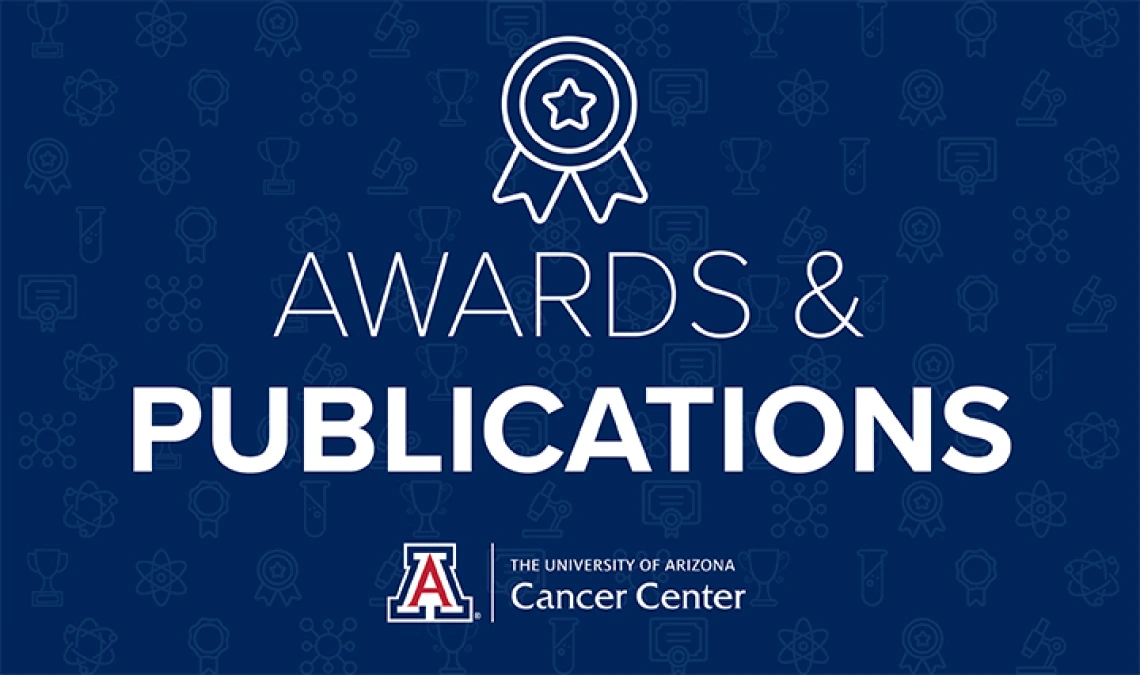UArizona Cancer Center Awards & Publications (February 2021)
Finding Tomorrow’s Treatments, Today

Awards Update: February 2021
Mohab M. Ibrahim, PhD, MD
Clinical and Translational Oncology Program
Project Title: Repurposing sulfasalazine in a two-arm phase two double-blind randomized clinical trial for the adjunct management of breast cancer-induced bone pain
Grant Number: R21CA245411
Administering Institute: National Cancer Institute (NCI)
Funding: $394,687 (2 years)
Project Research: Dr. Ibrahim’s project aims to explore the use of sulfasalazine, an anti-inflammatory drug, in order to reduce the opioid burden for patients experiencing metastatic breast-induced bone cancer pain. Current treatment of breast cancer-induced bone pain is largely dependent on opioids that may partially relieve malignant pain, but it comes at a significant risk for side effects that can decrease the quality of life. Previous research conducted in animal models by Todd Vanderah, PhD, Cancer Biology Program research member and department head of Pharmacology, has demonstrated promise for the use of sulfasalazine to reduce cancer-induced bone pain. Dr. Ibrahim’s single-center pilot study will explore this in humans to potentially decrease use of opioids in treating such pain, which could also improve quality of life. A secondary aim of the project will begin to investigate the mechanisms with which sulfasalazine decreases pain. This project is developed and being conducted in collaboration with Pavani Chalasani, MD, Dr. Vanderah, and Amol Patwardhan, MD, PhD.
Dr. Ibrahim says: “This whole project is the fruit of collaboration between basic and clinical sciences. It's a project between the Departments of Anesthesiology, Pharmacology and the Cancer Center. While we don't think we can completely remove all opioids, reducing the amount of opioids used by 30 to 50 percent may translate into major benefits for the patients. I don't need to tell anyone the issues associated with opioids; it's on the news practically every day. So, if we can reduce opioids, the patients will find a high degree of satisfaction and improvement in the quality of life.”
Terry A Badger, PhD, RN
Cancer Prevention and Control Program
Project Title: Providing symptom self-management skills to Spanish speaking cancer survivors and caregivers: Expanding outreach through an academic-community partnership
Grant: Community & Academic Partnership Program (CAPP)
Administering Institute: UArizona Cancer Center
Funding: $100,000 (2 years)
Project Research: Dr. Badger and her academic community partner Cancer Support Community of Arizona (CSCA), are the first recipients of the Community & Academic Partnership Program (CAPP) grant, as awarded by the Office of Community Outreach and Engagement. The purpose of the CAPP grant is to have a UArizona Cancer Center scientist work collaboratively with an Arizona community partner to address local cancer issues and cancer health disparities to formulate important research questions. Dr. Badger’s work provides symptom management interventions to cancer patients and their caregivers with the idea of reducing psychological distress and teaching them self-management strategies for all the various symptoms that cancer patients experience. Her community partnership with CSCA is geared toward English and Spanish-speakers over the telephone. The new award will allow for an expansion of services and training in Southern Arizona.
Dr. Badger says: “This grant will help solidify our partnership with Cancer Support Community of Arizona and it’s going to help us do more outreach in Southern Arizona. We will be able to serve more cancer patients and their caregivers, and Cancer Support Community of Arizona will be participating in the research with us. At the end of this, we will be able to train their staff so they can continue to offer these services even after the research is over. And one of the great things about this is that we already have translated our materials into Spanish and interventions are provided by bilingual providers, so this will have a positive impact on our Spanish-speaking community.”





